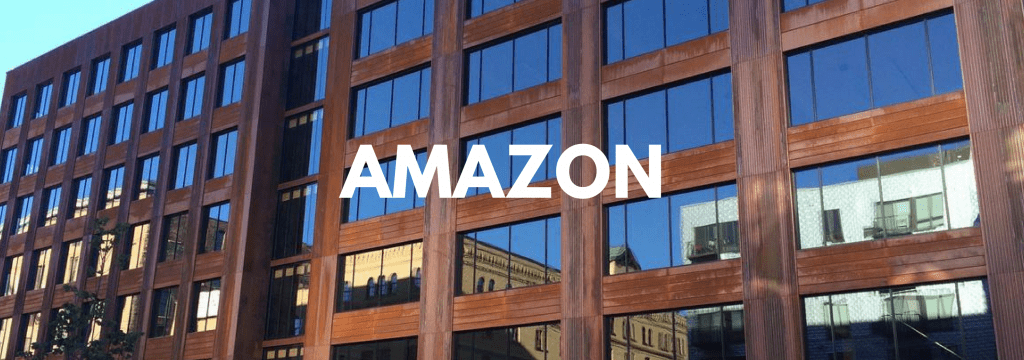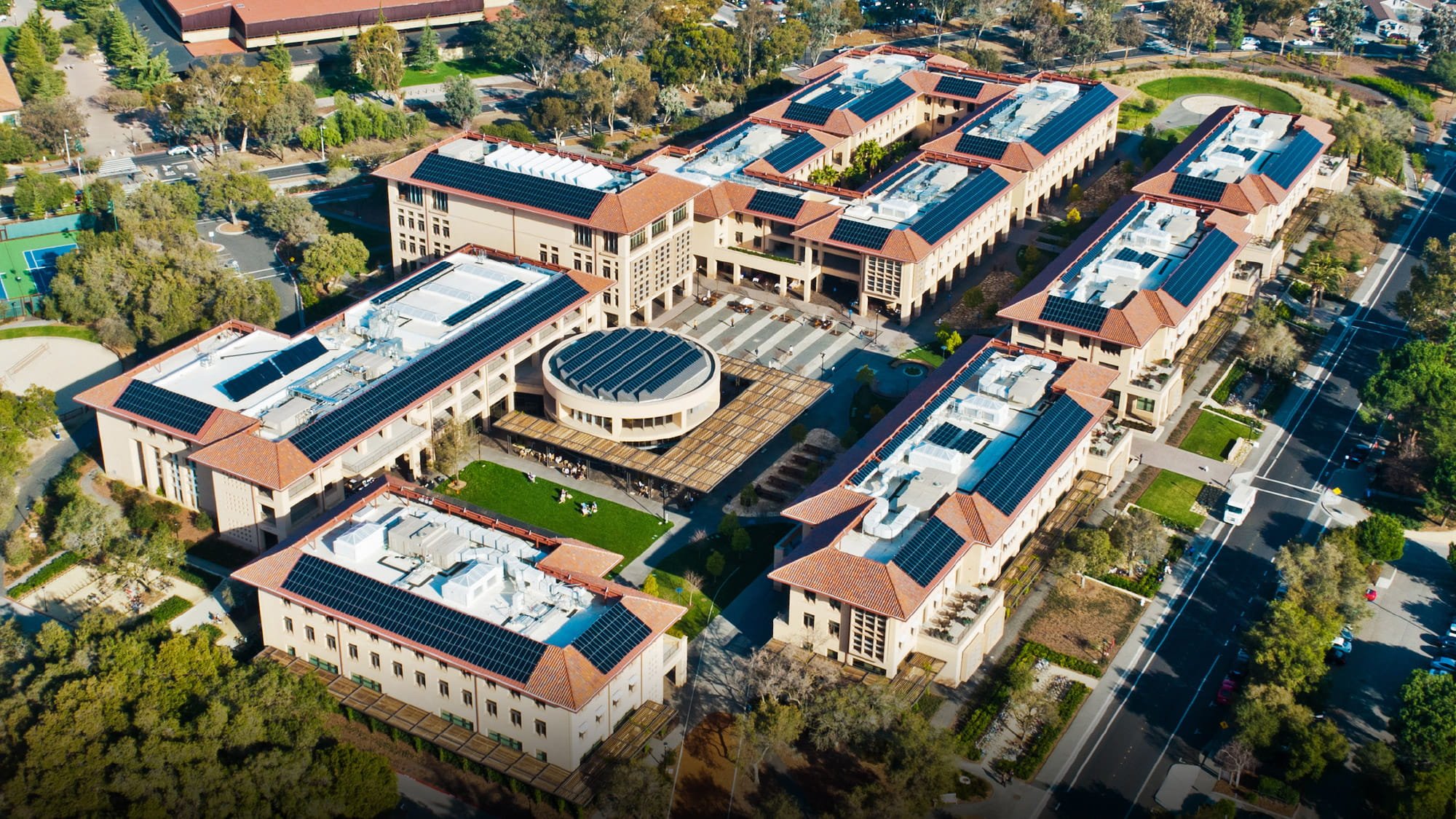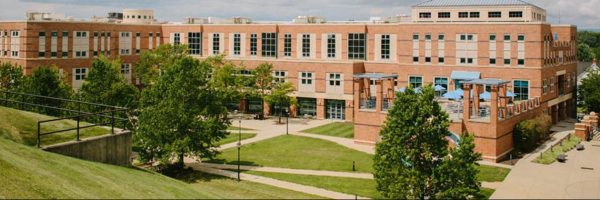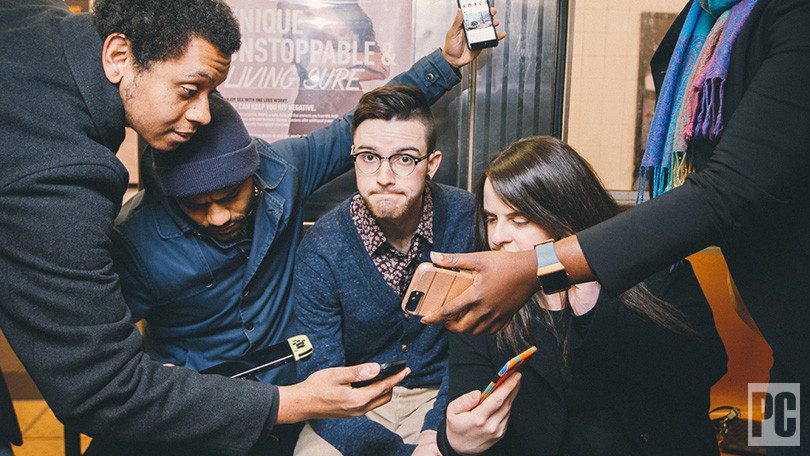Turning Ocean Garbage Into Helpful Prosthetics, and More – Chicago News

Let’s explore some of the most interesting stories that have emerged from Chicago business schools this week.
How “Speed Factories” Help Companies Adapt to Capricious Consumers – Kellogg Insight
In a new study co-authored by Northwestern Kellogg Professor of Managerial Economics and Operations Jan Van Mieghem, Vlerick Business School’s Robert Boute, and Cardiff Business School’s Stephen Disney, the trio survey the return on investment for “speed factories” or local-market facilities “designed to quickly pump out products with shorter life cycles and less predictable demand.”
In the e-commerce age, speed factories are in high demand for manufacturers of realms of sneakers and sports apparel where they “offer fast turnaround to meet demand [for] custom-made products for very small local markets.”
Van Mieghem writes, “Amazon and fast-fashion trends mean that companies have had to increase their speed from product design to delivering that product to customers. If things must happen in days or weeks rather than months, you can’t be doing that from somewhere in Asia.”
The catch is that production costs are often extremely high. However, the trio found that speed factories are “worthwhile, despite their cost, and are best used as part of a portfolio of on and offshore production.”
Van Mieghem adds, “It’s about maintaining the flexibility to bring certain products in and move others out of a speed factory as needed.”
You can read more about the trio’s research here.
Anacortes Couple Turns Ocean Plastics into Prosthetics – K5 News
Gies College of Business Online MBA (iMBA) student and Anacortes, Washington resident Chris Moriarty and his wife Laura co-created the nonprofit Million Waves Project, which “takes littered plastics from the beaches for use in the creation of prosthetics.”
According to a recent profile on Seattle’s K5 News, “It takes just 15 plastic bottles, $45, and two-and-a-half days to make one hand. The couple uses open source software, a company that processes the plastic into filament and a 3-D printer.
In the K5 profile, Chris said, “We thought, wouldn’t it make a lot of sense to take something deplorable in one sense and something heartbreaking in another, put them together and see what we could do.”
Laura adds, “It is daunting. Life is daunting. But like we tell our kids, that doesn’t mean you don’t move forward and try.”
Taking Stock of Market Uncertainty – Quinlan School of Business Stories
The Loyola University Quinlan School of Business blog recently profiled Assistant professor Hae mi Choi, Ph.D. about her research on how macroeconomics and market uncertainty influence financial analysts’ incentives over time.
Professor Choi explained that “financial analysts’ incentives and their forecasting performances are affected by market uncertainty, [which is] when investors have difficulty assessing the current and future market conditions because there is a lot of volatility within the market.”
Choi explains the value of her research to Quinlan students:
“If you want to be a good investor, you need to not only understand what’s going on within a firm, but also the macroeconomic conditions and the stock market conditions in general. Understanding how other investors in the stock market process information and how financial markets function is fundamental, as it impacts the wealth of us all.”
You can read the full interview here.
In Search of the Best MBA Internships in the Bay Area

It’s not just the entrepreneurship and technology boom of the past thirty years that has brought San Francisco into prominence as a major city for business. In fact, the city’s legacy as a center for banking and finance can be traced all the way back to the years of the gold rush. From it’s nickname as the “Wall Street of the West” to its role today as a hub for technology and social media companies, San Francisco has long been a city where young business professionals can thrive.
MBA programs in the metro offer opportunities for students to connect with local organizations through Bay Area internships and corporate partnerships. These internship opportunities, the majority of which are arranged through campus recruitment or university networking, frequently open the door for full-time employment and ongoing career training. Below, we’ve rounded up just a few of our favorites.
The Best Bay Area Internships for MBAs

Amazon consistently makes the lists of top employers, both for full-time positions and summer internships, for graduates from universities like the UC Davis Graduate School of Management, SJSU’s Lucas Graduate School of Business, and the Haas School of Business at UC Berkeley.
This likely doesn’t come as a surprise. With an extensive reach into the retail, tech, and entertainment industries, Amazon has made headlines in the past years for its vigorous hiring of MBA students and graduates. In 2015, the company was the number one employer for graduating MBA students, and it doesn’t look like that trend will change any time soon.
Amazon has hired more Haas MBAs for employment and internships than any one company has in recent history (33 in 2017). There are also currently 165 Haas alumni already working at the company, who continue to play a large role in the recruitment and onboarding process for new hires.
One reason that might explain the staggering number of Haas MBAs joining Amazon is the company’s vigorous recruitment process, which begins early in fall and provides practice for case interviews. According to MBA alum Carolyn Chuong, now a Senior Product Manager at Amazon, the Amazon corporate culture and Berkeley’s academic philosophy are a good fit for each other.
“Haas and Amazon have cultures that value feedback,” she said.

San Francisco’s role today as a hub for technology may help explain why Cisco Systems, an American multinational technology company headquartered in San Jose, is one of the top internship destinations for MBA students at schools like Haas, SJSU, and the University of San Francisco School of Management.
For students both in and out of the tech fields, Cisco offers internship opportunities in fields like marketing, security, supply chain, operations, human resources, and more. Schools like the San Jose State University even offers special opportunities through their corporate partnership with Cisco, such as a unique MS Software Engineering, specialization in cybersecurity available only for employees.

Listed in 2017 as the most visited website in the world, Google seems to have no limits to how far the company might grow. Headquartered in Mountain View, California, Google now employs more than 85,050 people around the globe. Talented MBAs who can break into the company can make, on average, nearly $6,000 per month as an intern, not to mention attractive benefits like free food, gym membership and transportation. Simply put, a stop at Google is one of the most attractive Bay Area internships out there.
Not surprisingly, Stanford University Graduate School of Business and Berkeley Haas have the most alumni currently with Google. San Jose State University and UC Davis grads are also prolific at the company, among other top schools like Cornell, Harvard, and MIT. Landing an internship at Google can be an incredibly challenging process. With high rates of alumni from California schools working at the company, students can leverage their university’s professional network to make connections and get their foot in the door.

Tesla, a multinational corporation specializing in renewable energy, offers a large number of internships and co-ops for MBA students. With its headquarters in Palo Alto, CA, and a commitment to taking on some of the world’s most important problems, it’s understandable why students at schools like USFCA, UC Davis, and SJSU seek out internship opportunities with the company.
“My experiences as a Tesla intern are some that I will take with me for the rest of my career,” one Tesla intern said on her experience. “I had the opportunity to tackle problems that were challenging, unique, and relevant—and within several weeks, I was trained to weigh in on decisions that would affect an entire production line.”
According to Tesla, interns and co-ops will be matched with teams and projects based on their background and career goals. Many Tesla interns have returned to the company in a full-time role after graduation.
Best MBA Internship Opportunities in the Northeast

There’s no doubt that summer internships play a critical role in an MBA student’s education and career. Not only do internships provide students with the opportunity to gain hands-on experience in the workforce, but they’re also known for helping students develop professional connections and earn top-tier salaries.
But not all internships are made equal, especially for talented business school prospects. For example, working at Apple would likely have a very different effect on an MBA’s resume than working for a small, unknown startup company down the street. And if you’re looking at the top cities across the U.S. where companies actively recruit talent, you can’t go wrong with Boston, New York City, or Philadelphia for your location. But which is the best?
In this article, we highlight the top internship destinations in each city along with the top two schools in each area that will get you where you want. Continue reading…
Financial Times Ranks the Top MBAs for Entrepreneurs

Leading entrepreneurs in the business world today can often be seen as trailblazers, standing strong and independent in an often cutthroat world. What isn’t seen as often is the kind of support—whether financial capital or mentorships—that can help get an idea off the ground. In recent years, business schools and MBA programs around the globe have made this kind of support for new businesses a core part of their operation, often offering entrepreneurship majors, business pitch competitions, startup incubators and more.
Each year, The Financial Times releases their ranking of the best MBA programs for entrepreneurship, helping up-and-coming entrepreneurs to make informed choices about the best program for their career and startup goals. Its latest ranking, for 2018, has just been released.
The 2018 ranking of the top MBA’s for entrepreneurship compiled fifty schools from around the world. A number of factors went into determining which schools would make the grade, including the percentage of graduates who started a company after earning their degree, percentage of female entrepreneurs, the extend to which funding from the school or from the school’s alumni network helped in the creation of new businesses, and more. These factors combined would help decide in what position a school would fall on the ranking.
This year, schools in the United States took the top three spots on the list: the Stanford Graduate School of Business, the F.W. Olin Graduate School of Business at Babson College, and the Tuck School of Business at Dartmouth College. Two UK business schools—the Lancaster University Management School and the Cass Business School—rounded out the top five.

Despite dipping numbers of students, the Stanford Graduate School of Business entrepreneurship program is still the top-ranked in the world, according to the Financial Times.
At Stanford, although it still ranked as the best school for entrepreneurship globally, there was actually a significant drop since in the number of students starting a business within three years of graduation. This year, it was just 22 percent of students compared with last year’s 36 percent. Babson College’s Olin Graduate School of Business also witnessed a drop; from 52 percent last year to 37 percent in 2018.
One explanation for the drop, however, is not that interest in entrepreneurship is declining, but instead being taken on more as a ‘side hustle’ than a full-time career. This was certainly the case for Samantha Penabad, a former strategy manager at Accenture and MBA at Berkeley’s Haas School of Business, who has been working on a digital donation platform called GivingFund. Although she didn’t intend on becoming an entrepreneur when she started business school, tutors at the university helped her to develop a business plan and a fellow student with finance experience joined as a co-founder. The service is scheduled to launch later this month.
But GivingFund remains a side job for Penabad, who will be taking on a full-time job in strategy and operations at Google in New York after graduation. As a result, someone like Penabad will be not be included in data for students starting businesses after graduation, but among those accepting full-time jobs. Students pursuing similar paths—working full-time but starting businesses on the side—may help explain the dip in entrepreneurship that many MBA programs are witnessing.
One reason behind this trend may be the fact that many students see a full-time role as just one step to eventually starting their own company. By putting their skills to work at a top company like Amazon or Google, students are able to more quickly pay off their student loans, which means eventually starting a business debt free. Companies like Amazon also may seek out those with entrepreneurial experience, because it demonstrates an attractive leadership quality.
“We welcome applicants with an entrepreneurial spirit,” says Amazon’s senior manager of campus recruiting, Dee Clarke. “They are given the ownership over their work, like they would [in] their own business, but within a global support network that provides added guidance and support.”
Guthrie Jones, an MBA at London’s Cass Business School, holds a similar philosophy. Although he had no intention of getting into entrepreneurship, he couldn’t stop thinking about one particular business idea and decided he’d have to pursue it. Guthrie believes his company, Icepick, which lets people rent out space on their hard drives, has the potential to become a global business. Still, if he right opportunity for a salaried role came up after graduation, he would gladly shift his plan to the side.
Nevertheless, student interest in studying entrepreneurship as part of their MBA has grown at schools like Cass. Part of this may be the result of Cass’s £10m investment fund, which has not only supported new MBA start-ups but has also trained students in the process of investing.
Financial Times MBA Entrepreneur Ranking (2018)
- Stanford Graduate School of Business
- F.W. Olin Graduate School of Business (Babson)
- Tuck Business School (Dartmouth)
- Lancaster University Management School
- Cass Business School (City University)
- Otto Beisheim School of Management (WHU)
- IMD Business School
- Saïd Business School (Oxford)
- Harvard Business School
- Judge Business School (Cambridge)
Columbia Finds Surprises That Hurt Advertisers, and More – New York City News

What’s going on in New York business schools this week?
Study by Columbia Business School Finds Search Tools Like Broad Match Can Hurt Advertisers More Than It Helps – Columbia Business School Blog
New research co-authored by Columbia Business School associate professor of business Kinshuk Jerath calls into question the efficacy of search tools like broad match, which automate the process of “figuring out all the possible keywords that consumers might search for.”
According to the article, paid search ad spending will reach nearly $40 billion in the U.S. alone by 2019. Jerath writes, “Tools like broad match have led to too many advertisers competing over the same keywords, because now bidding on keywords is so easy. The result is that the search engines are actually the only real winners.”
In a paper entitled Keyword Management Costs and “Broad Match” in Sponsored Search Advertising, Jerath and co-authors Wilfred Amaldoss from Duke Fuqua and Amin Sayedi of UW Foster found that “broad match is only effective to a point, a threshold driven largely by the accuracy of broad match that is controlled by the search engine, not the advertiser.”
“Anything that makes advertising cheaper creates more competition—and can ultimately hurt your return on investment. “
You can read more of the research here.
Deloitte CEO Cathy Engelbert to Lehigh Graduates: ‘Do What Hasn’t Been Done’ – Lehigh College Business and Economics Blog
Deloitte CEO Cathy Engelbert, Lehigh College Business and Economics ’86 graduate, used her recent commencement address to share three life lessons that stressed to graduates of Lehigh’s 150th Class the importance of “always remembering what matters to them most.”
Engelbert advised students to “do what hasn’t been done” and “find creative, impactful ways of using new technologies for good.” She said, “I encourage you to stay optimistic and play an active, key role in carving the path leveraging your uniquely human skills—like creativity, empathy, communication, and complex problem-solving.”
Her second piece of advice was to “schedule your personal updates,” just as one might update “various devices to ensure they are operating at peak performance.”
Engelbert’s third and “most important” lesson was to “stay anchored on what matters to you most.”
“I’m sure many of you have a purpose you’re passionate about. That doesn’t end today with graduation. You can carry that through whatever you’re going to do next … from graduate school to entering the workforce. There’s a push to come together as social issues grow in depth, severity and priority. I challenge you to take a bold stance and make a difference in your day-to-day work.”
Read the full commencement report here and footage from the ceremony below.
Professor Scott Galloway discusses how Walmart is positioning itself to compete with Amazon – NYU Stern News
NYU Stern School of Business professor of marketing Scott Galloway was recently interviewed as part of a CNNMoney piece on Walmart’s plan to take on Amazon as the country’s preeminent universal retailer, particularly when it comes to online grocery delivery. Galloway writes:
“Walmart is the only firm that has the management, capital and the scale to compete with Amazon. They’ve probably done as good a job of getting off their heels and on their toes as any retailer in the world.”
You can read the full story here.
Lehigh MBA Success, and More – New York City News

Let’s explore some of the most interesting stories that have emerged from New York business schools this week.
Extraordinary Outcomes for Lehigh’s 1-MBA and M2 Programs – Lehigh College of Business and Economics
This past spring saw Lehigh graduates from the College of Business and Economics’ inaugural 1-MBA (1-year full-time MBA) cohort, as well as the third cohort of its M2 (MS in Management) complete the transition from the classroom to the boardroom.
Employers like Tesla, QVC, and Hubspot snatched up 1-MBA graduates while Amazon, Bloomberg, IBM, KPMG, and more extended offers to nearly 80 percent of M2 graduates. This statistic is very much in line with figures from the 2017 graduates of the M2 program—96 percent of which were employed within three months of graduation by the likes of Deloitte, Vanguard, IBM, and Amazon.
You can read more about the recently Lehigh MBA success here.
School of Management Students Provide Support to Businesses Looking to Export – Binghamton SOM Blog
This semester, Binghamton SOM students took part in the six-month ExportNY “Launch into the Global Marketplace” program, a unique offering that adjunct assistant professor founding director of the Center for International Business Advancement (CIBA) Elena Iankova developed to help give “regional businesses [the] knowledge and resources needed to export their products.”
The basic idea that underlies the “Launch into the Global Marketplace” program is that students research, consult, and support the export plans of participating businesses. Iankova explains: “It’s a two-way street. The students provide the companies research assistance and consultation, and the companies provide the students real-life experiential learning opportunities, helping them develop their management research and consulting skills.”
The program is a partnership between the CIBA and the Alliance for Manufacturing & Technology (AM&T), the Global New York Program of Empire State Development, and the U.S. Commercial Service and the Small Business Administration.
One of the participating companies, Awestruck Ciders, “produces hard ciders from NY state apples” and hopes to export its product to the South African market. Co-founder Patti Wilcox writes: “We think it’s important to the local economy to expand our view of the market on a global scale. We’re fascinated by this idea of an international cultural exchange, and we think doing so commercially is very valuable.”
You can read more about the program here.
The Endless Scroll: How to Tell if You’re a Tech Addict – PC Mag
Just recently, PC Mag dropped its lengthy article “The Endless Scroll: How to Tell if You’re a Tech Addict,” written by Rob Marvin.
In the piece, Marvin highlights Irresistible: The Rise of Addictive Technology and the Business of Keeping Us Hooked from NYU Stern School of Business professor Adam Alter, who doesn’t mince his words when it comes to tech addiction.
“There’s a myth that there’s something different about people with addictions from people without addictions,” Alter explained in his interview with Marvin. “Right now, if you are a person who doesn’t have an addiction, does that make you in some qualitative or categorical way different from people who do? The more I’ve studied this, the more I realized that just isn’t true.”

“Right now, if you are a person who doesn’t have an addiction, does that make you in some qualitative or categorical way different from people who do? The more I’ve studied this, the more I realized that just isn’t true.” – NYU Stern professor Adam Alter, interviewed by PC Mag / Photo via PC Mag
You can read more from Marvin’s excellent piece, out now, over at PC Mag.
